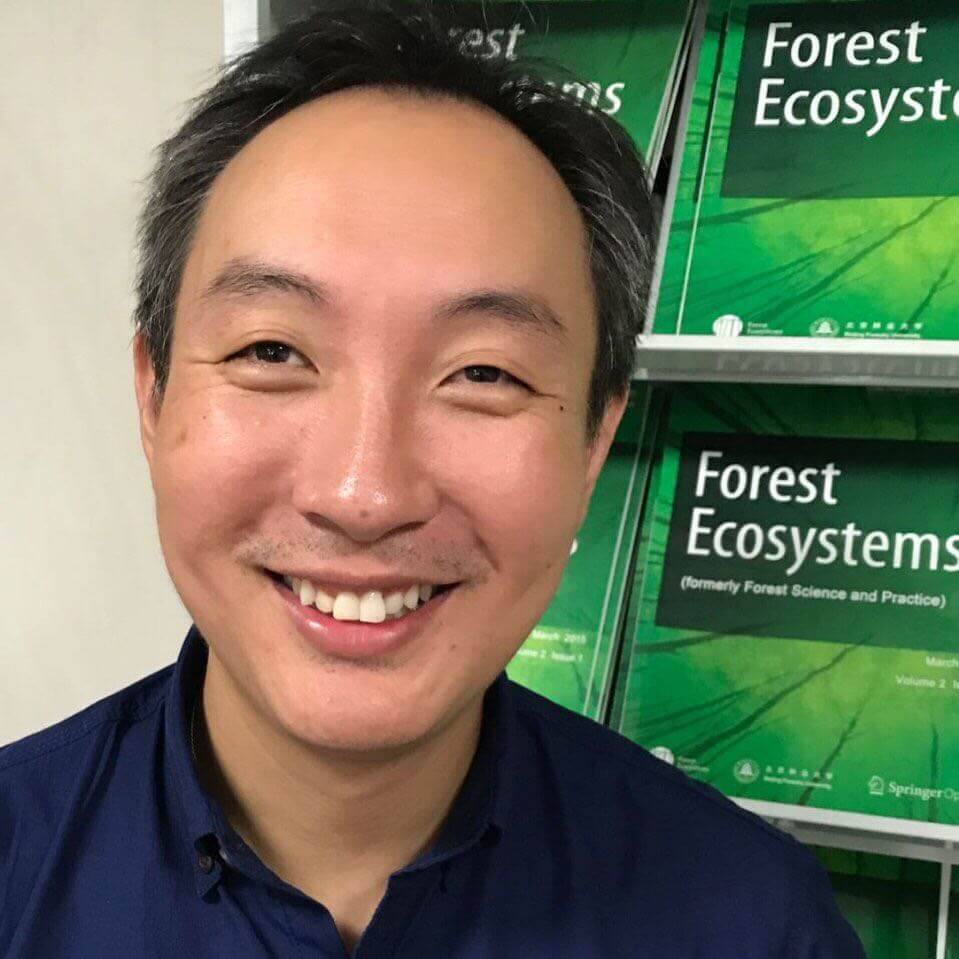COVID lessons applied to forestry, climate change
UN agency and Purdue hub advocate for global forest data sharing
Many of the countries that successfully curbed their COVID-19 infection rates did so through the open sharing of vast amounts of data that allowed health officials to inform the public and distribute medical resources. It’s a model that officials from the United Nations Food and Agriculture Organization (FAO) believe can also slow the world’s deforestation, forest degradation and climate change.

Global data sharing comes with significant challenges, but FAO technical experts and Purdue University’s Jingjing Liang believe international collaboration can provide a roadmap to overcome them. Liang, an assistant professor of forestry and natural resources, is also a coordinator of the Global Forest Biodiversity Initiative (GFBI), an international consortium of forest scientists and practitioners dedicated to sharing and utilizing data to solve global forestry issues.
“More often than not, governments collect important forest data with public finance, generate reports and then the reports and the data sits in drawers. Data has power and value, and it has more power and value when it’s shared”. said Julian Fox, FAO’s national forest monitoring team leader. “At the FAO, we are working with countries to move the huge amounts of forest data from hard drives into the public domain through data sharing agreements. The GFBI has a modality that enables data sharing, and it’s something we can learn from.”

Liang, Fox, and the FAO’s Javier García Pérez, Rocío D. Cóndor-Golec and Rebecca Tavani detailed lessons learned from the COVID-19 pandemic about how data sharing has helped control the spread of the disease in countries like Germany. The lack of data sharing in other countries exacerbated the number of cases and deaths. Their commentary, published by the Sustainable Development Goals (SDG) Knowledge Hub from the International Institute for Sustainable Development, an online resource for news and commentary on the UN’s 2030 Agenda for Sustainable Development, suggests looking to the pandemic for lessons on how to address critical issues in global forestry and climate change.
“Inadequate government response to the pandemic has led to preventable deaths from a highly contagious virus, just as inadequate government responses to the climate crisis could result in exacerbated effects by drought, fires or flooding as well as rising food insecurity,” the authors wrote. “The pandemic reinforces the importance of data for interpretation and dissemination. It is a resource that needs to be carefully curated, because leaders, whether in health or in climate science, need to make informed decisions in order to respond to global agendas such as the Sustainable Development Goals (SDGs). Likewise, citizens will need assurance and transparency to act as individuals and communities, and to advocate for data-driven policy development.”

Liang said the GFBI model works because it addresses two core issues surrounding data sharing — motivation and means. Once data is handed over, its developers often lose control and often don’t get credit for their work. The GFBI requires those who use shared data pools to include the original data contributors as co-authors for research papers or in the acknowledgements. It also offers an easy cyberinfrastructure for uploading data to one central location for use by hundreds of initiative members.
“We’re interested in answering questions about the amount of carbon being fixed in plants, the change of biodiversity in forests each year and other questions that require large amounts of data from all over the world,” Liang said. “We’ve developed a database that is easy to use and benefits both those sharing the data and those using it. We think the model has worked well so far and see a great opportunity to work with the FAO to add further data that can become available to government officials, scientists and non-governmental organizations around the world.”
García Pérez, the first author of the article, believes that increased data sharing can spur more action on forests and more clearly articulate their role in climate change mitigation and adaptation. Showing changes on a global level and areas in which change can be made can better focus and motivate private interests and non-governmental organizations, García Pérez said.
“It is time to open the forest data and work together to come up with better models so society and governments can come up with better solutions for climate actions,” he said. “Meanwhile, it is important that open databases follow standards to minimize misuse and misinterpretation.”
Moving forward, the authors point to ongoing FAO efforts to establish interactive platforms and dashboards for accessing global forest data through a project focused on increasing transparency in the forest sector; the development of open source tools, such as the OpenForis initiative, to facilitate data collection, analysis and reporting; and continued efforts to create agreements with countries around the world to share their forest data.
“FAO and the GFBI Hub at Purdue are working together to publish more forest data to strengthen our collective efforts to identify and apply solutions for forests as key responses to the climate emergency,” Liang said.





